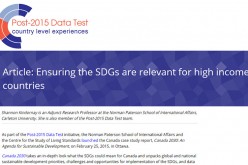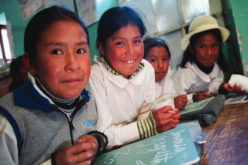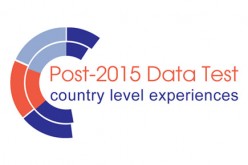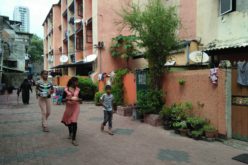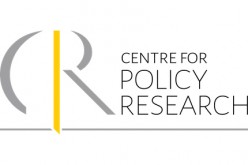Domestic Resource Mobilization: A Financing Option for Sustainable Development in Africa
This post has been written by Ebere Uneze, executive director at CSEA in Nigeria. He is working on a research project that explores domestic financing options for Post-2015 Development Agenda in Africa as part of theSouthern Voice Initiative.
The proposals from various consultations and discussions on the post-2015 sustainable development agenda suggest that the goals and targets will likely be more ambitious than the MDGs. What this implies is that more financial resources will be required and aid alone will not be enough. Therefore, domestic resource mobilization (DRM) will be critical for Africa, which in the past decades has relied on aid to drive its development.
DRM has long been recognised as an important source of development finance. For example, the Monterrey Conference of 2012 recognised DRM as one of the six leading sources of finance for the MDGs. However, under the MDGs financing plan, DRM was restricted to revenue accruing to governments through taxation, excluding savings and investment generated by households and domestic firms. Given that the post-2015 development agenda is likely to be broader in scope, there is a need to include these additional domestic options in the financing architecture.
What makes DRM imperative?
Africa, in the last decade, witnessed a dramatic rise in tax revenues and remittances, which individually exceed recent aid inflows. While this progress is remarkable, it will be misleading to view DRM as a substitute for aid. Indeed, both are complementary, though DRM is less volatile and more sustainable. In my 2012 paper on foreign aid and private investment, aid uncertainty was found to impact negatively on private investment in West Africa. Arecent blog post by John Kwakye also highlights the limitations of aid. Kwakye noted that aid tends to reduce incentives for DRM, create indebtedness and inhibit economic expansion through “aid tying”.
Beyond its financing role, DRM helps to strengthen fiscal institutions, which, often, are viewed as imperatives of state building, and key to improving accountability. In essence, more effective and transparent tax systems can contribute to broader governance reforms in Africa. Also, less dependency on aid can promote domesticownership of development programmes, thereby helping to improve the allocation of resources in a way that maximises social outcomes. DRM could therefore help lay a solid foundation for a ‘new Africa’.
Are there reasons for concern?
While DRM is no doubt an important sustainable source of financing for the post-2015 development agenda, there are concerns that “natural resource curse” in Africa may limit its effectiveness. These concerns are informed by the experience of some countries (for example, Nigeria, Angola and Congo DR) where natural resources are the dominant sources of government revenue, and yet have not been used to improve service delivery.
Instead, resource endowments have created incentives for rent seeking, promoted bad governance and political instability. This is further compounded by the magnitude of capital flight. A recent study estimates capital flight and stolen assets from sub-Saharan Africa between 1970 and 2010 at US$ 814 billion, exceeding both Official Development Assistance (US$659billion) and Foreign Direct Investment (US$ 306 billion) over the same period.
Another concern is on “resource prioritization”. Most resource rich countries in Africa allocate a large proportion of their revenues to unsustainable and unproductive activities, such as fossil fuel subsidy. This displaces resources needed to finance ‘useful’ development and also encourages excessive consumption of fossil fuel; thereby elevating its negative consequences for the environment.
This is certainly a threat to the environmental sustainability mantra of the post-2015 framework. In addition, fuel subsidies tend to have a “ratchet effect” – without a ‘sunset’ clause it is difficult to reverse. In Nigeria, allocation to subsidized fossil fuel accounted for about 42 percent of the national budget and exceeded the combined expenditure on agriculture, health, education, and water sectors in 2012. The situation is not different in Angola where fuel subsidy constitutes more than one third of the government budget, at about 7 percent of her GDP.
What are the Implications for Post-2015 Sustainable Development Goals?
The overall discussion has two important implications for post-2015 development framework. First, the set of goals for post-2015 development agenda must pay particular attention to domestic ownership and national priorities. Unlike in the past when countries depend on external resources, post-2015 should draw on DRM and other innovative domestic financing options, including repatriation of stolen assets. African countries must therefore unite efforts to develop capacity to generate their own resources for sustainable development. The post-2015 agenda must recognise national and regional priorities; setting the same targets for countries at different stages of development or with different needs would certainly not be the right way to go. In all, finding the right mix of goals, targets and financing options that leaves no individual and country behind should be the concern of everyone.
Second, the proposed governance goals for post-2015 should include the key building blocks of fiscal accountability and transparency. Present discussion on governance goals have mainly focused on improving human rights. While countries should be allowed to manage their own resources to their best interest, there is a need to provide mechanism to guide against mismanagement and misallocation of scarce resources. With aid, donors can condition their interventions on improving specific domains of governance, which could enhance DRM systems.
Lastly, leaving no one behind will require leaving no stone unturned in all spheres of the post-2015 agenda: finance, governance, policy implementation, global partnership among others. Development cooperation, more than anything else, is required to achieve this daunting, but important task.
1,422 total views, 1 views today




